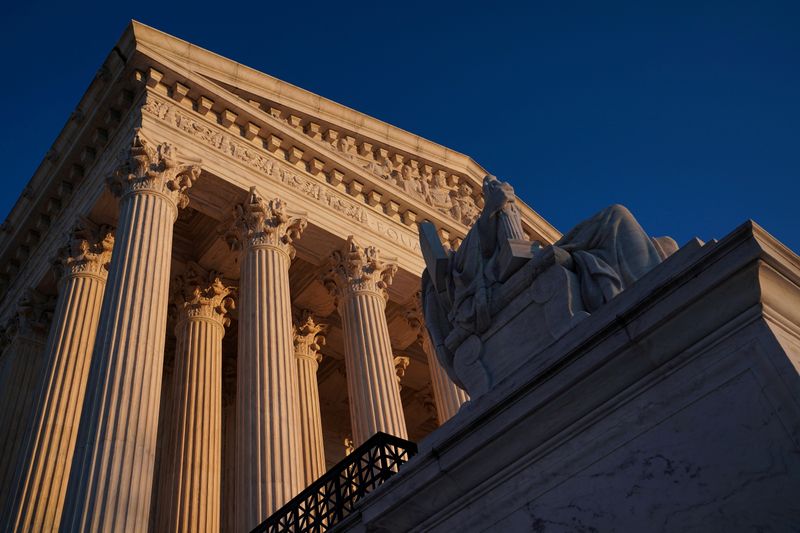By Lawrence Hurley
WASHINGTON (Reuters) - The federal government must "honor its obligations" and pay private insurers $12 billion owed to them under an Obamacare provision aimed at encouraging them to offer medical coverage to uninsured Americans, the U.S. Supreme Court ruled on Monday.
The 8-1 ruling authored by liberal Justice Sonia Sotomayor paves the way for a significant one-time cash infusion for major companies such as Humana Inc (NYSE:HUM), Anthem (NYSE:ANTM) Inc and Centene (NYSE:CNC) Corp. The justices reversed a lower court's ruling that Congress had suspended the government's obligation to make such payments under the Affordable Care Act, widely known as Obamacare.
Unlike other litigation involving Obamacare - long targeted by Republicans for repeal in Congress or invalidation through the courts - this case concerned only payments to insurers and did not directly challenge the law itself.
The Supreme Court in its next term, which starts in October, is set to hear a more politically freighted case concerning a bid by 20 Democratic-led states including California and New York to preserve Obamacare in the face of a challenge by Republican-led states backed by President Donald Trump's administration. [L1N2AV0MJ]
In Monday's ruling, the court sided with insurers that had argued that the lower court ruling would have let the government pull a "bait-and-switch" and withhold money the companies were promised.
"The government should honor its obligations," Sotomayor wrote.
Justice Samuel Alito, one of the five conservative justices, was the sole dissenter, saying the court's ruling "has the effect of providing a massive bailout for insurance companies that took a calculated risk and lost."
Moda Health Plan Inc and other insurers that sued to try to compel the U.S. Department of Health and Human Services (HHS) to make the payments have said the government was supposed to help them recover from early losses they suffered after the law was passed by Congress in 2010 and signed by Trump's Democratic predecessor Barack Obama.
The law has enabled millions of Americans who previously had no medical coverage to obtain insurance, including those with pre-existing medical conditions.
Other insurers involved in the case included Blue Cross and Blue Shield of North Carolina, Maine Community Health Options and Land of Lincoln Mutual Health Insurance Company.
"We appreciate that today's Supreme Court 8-1 decision ensures that the federal government honors the obligations it made for services the private sector already delivered," said Matt Eyles, president of America's Health Insurance Plans, an industry group representing insurers.
An HHS spokeswoman said officials were "disappointed in the court's ruling."
Payments would have come through the law's so-called risk corridor program designed to mitigate insurers' risks from 2014 to 2016, when they sold coverage to previously uninsured people through exchanges established under Obamacare.
Insurers that paid out significantly less in claims on policies sold through the exchanges than they took in from premiums provided some of their gains to the government. Insurers that paid out more were entitled to government compensation for part of their losses.
From 2015 through 2017, Congress passed legislation barring HHS from using general funds to pay the government's risk corridor obligations. Health insurers turned to federal courts to obtain the payments.
The U.S. Court of Appeals for the Federal Circuit ruled in 2018 that Congress effectively repealed its obligation to pay the insurers, prompting the insurers to appeal to the Supreme Court.

In a case directly challenging Obamacare, the Supreme Court in 2012 upheld the bulk of the law. Three years later, it rejected another challenge to it.